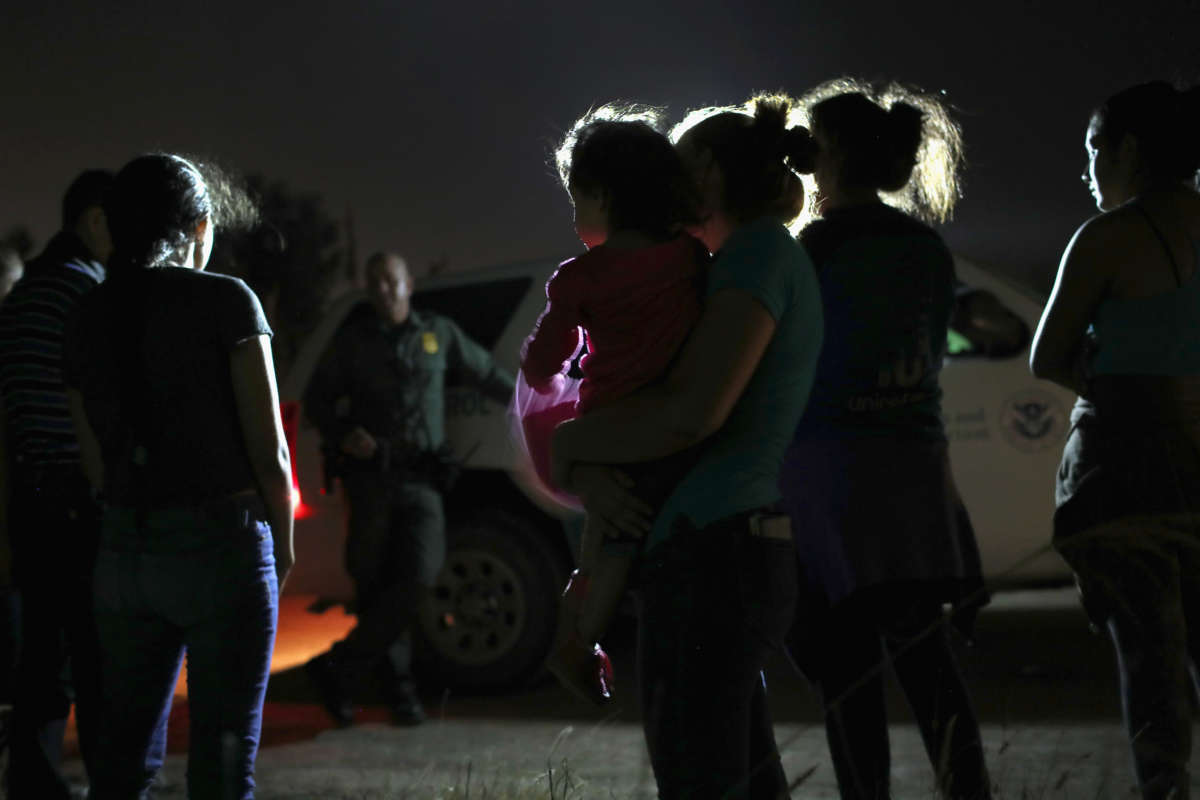Last month, the world was shocked and outraged to learn that lawyers tasked with locating relatives of child migrants seized by U.S. immigration agents under the Trump administration’s “zero tolerance” policy were unable to locate the parents of 545 children. Now it turns out that the actual number of children and infants separated from their parents is significantly higher than previously thought, according to an email obtained by NBC News.
In the email, Steven Herzog, the lawyer leading the effort to locate the children’s relatives and reunite the families, says that 666 children — about 20% of whom were under the age of 5 when they were ripped away from their parents — remain separated. Herzog attibutes the initial undercount to the fact that the government did not provide phone number contacts for 129 of the minors.
“We would appreciate the government providing any available updated contact information, or other information that may be helpful in establishing contact for all 666 of these parents,” Herzog wrote to Justice Department attorneys representing the Trump administration.
For the parents of the 666 children, we need more information from the government to find them quickly. https://t.co/8scmSoHrci
— ACLU (@ACLU) November 9, 2020
Last month, the House Judiciary Committee released a scathing report revealing the administration knew it would not be able to reunite migrant families when planning the “zero tolerance” separation policy, but implemented it anyway. The Democratic-led committee spent 21 months investigating the planning and execution of the administration’s policy, which resulted in the seizure of more than 2,500 migrant children — including some with physical and mental disabilities — from their parents, the majority of whom are believed to have been deported from the U.S.
Both parents and children — who were often told by U.S. officials that they would never see each other again — have suffered tremendous emotional and psychological trauma that Physicians for Human Rights has called “torture” and “state-sanctioned child abuse.” The federal government often separated families who presented themselves at U.S. ports of entry and legally requested asylum after fleeing violence or persecution in their home countries, much of it resulting from U.S. policies and actions.
Some of the children have been given to U.S. families, who are sometimes able to petition for permanent custody of them, and some of the children may indeed never see their parents again.
Deported parents may lose kids to adoption: An AP investigation finds holes in a system that allow state court judges to grant custody of migrant children to American families — without notifying parents. https://t.co/z8djG1yLMq (1/7)
— NBC News (@NBCNews) October 11, 2018
In late June 2018, as public outrage mounted in the face of stories like a breastfeeding baby being torn away from her mother and a father driven to suicide after being separated from his wife and child, the administration reluctantly rolled back the policy — which along with forced surgical removal of reproductive organs of migrant women has been called the Trump administration’s worst domestic human rights violation.
President-elect Joe Biden vowed last month that he will form a task force to reunite all of the separated children with their families. President Donald Trump, on the other hand, continues to defend the separation policy while falsely claiming that the seized children were brought into the country by human traffickers. Biden has called family separation “criminal,” but has not said whether or not he would seek to punish Trump or any of the administration officials who planned and executed the policy.
Once Trump’s out of office, we’ll be told that holding the child-snatchers accountable is “too divisive.”
Fuck that.
If we let the perpetrators move on with their lives like nothing happened IT WILL HAPPEN AGAIN.
There’s a reason Nazis were put on trial. https://t.co/D4ERVmVVBH
— ✡️ Never Again Action ✡️ (@NeverAgainActn) November 9, 2020
A terrifying moment. We appeal for your support.
In the last weeks, we have witnessed an authoritarian assault on communities in Minnesota and across the nation.
The need for truthful, grassroots reporting is urgent at this cataclysmic historical moment. Yet, Trump-aligned billionaires and other allies have taken over many legacy media outlets — the culmination of a decades-long campaign to place control of the narrative into the hands of the political right.
We refuse to let Trump’s blatant propaganda machine go unchecked. Untethered to corporate ownership or advertisers, Truthout remains fearless in our reporting and our determination to use journalism as a tool for justice.
But we need your help just to fund our basic expenses. Over 80 percent of Truthout’s funding comes from small individual donations from our community of readers, and over a third of our total budget is supported by recurring monthly donors.
Truthout has launched a fundraiser to add 500 new monthly donors in the next 10 days. Whether you can make a small monthly donation or a larger one-time gift, Truthout only works with your support.
